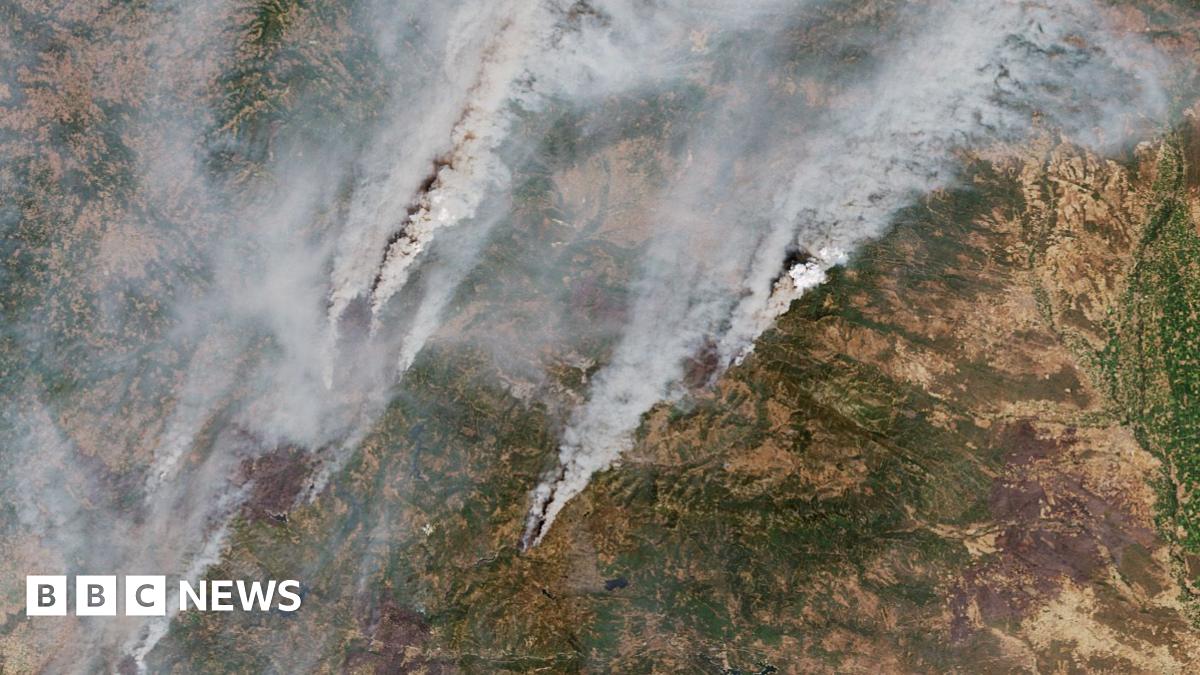Firefighters have been battling blazes right across Europe this summer.
Climate change caused by humans made fire-prone conditions in Turkey, Greece and Cyprus about 10 times more likely, according to a rapid attribution study by World Weather Attribution group at Imperial College London.
It was responsible for a 22% increase in the extreme weather conditions behind the fires, said WWA.
It is causing more extreme heat, which dries out vegetation, increasing flammability, said Theodore Keeping, wildfire scientist at the centre for Environmental Policy, Imperial College London.
The continued burning of fossil fuels will lead to more of these extreme fires, the researchers warned.
“It was urgent 10 years ago to stop burning fossil fuels,” said Dr Fredi Otto, Professor in Climate Science at Imperial and leader of the WWA, describing it as “lethal for people and ecosystems”.
“Today, with 1.3C of warming [since pre-industrial times], we are seeing new extremes in wildfire behaviour that have pushed firefighters to their limit,” said Mr Keeping.
The scientists have begun a rapid analysis on the wildfires in Spain and Portugal and expect similar findings related to climate change.
Across Southern and Eastern Europe, rural depopulation is also contributing to the intense wildfires, Mr Keeping added.
In regions like Spain and Portugal, a rising number of young people are relocating to cities in search of more profitable employment. Once-managed agricultural land is being abandoned and becoming overgrown, eliminating fire breaks and increasing the amount of flammable vegetation vulnerable to intense blazes.
